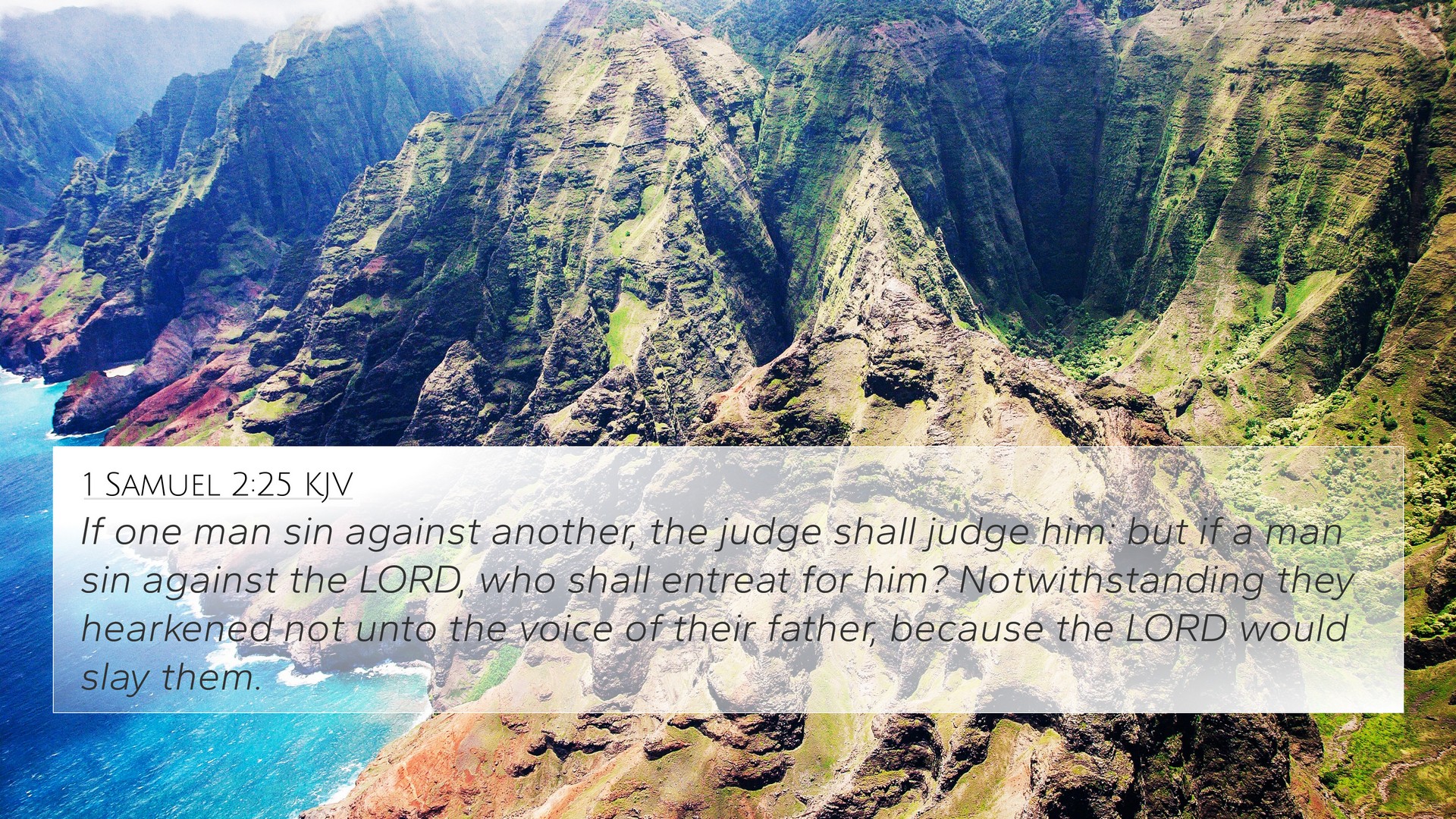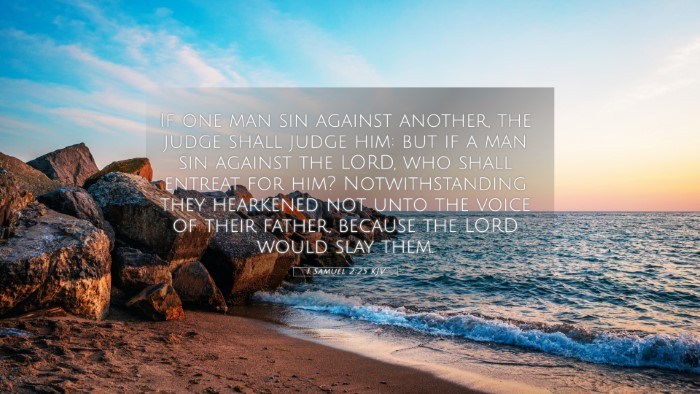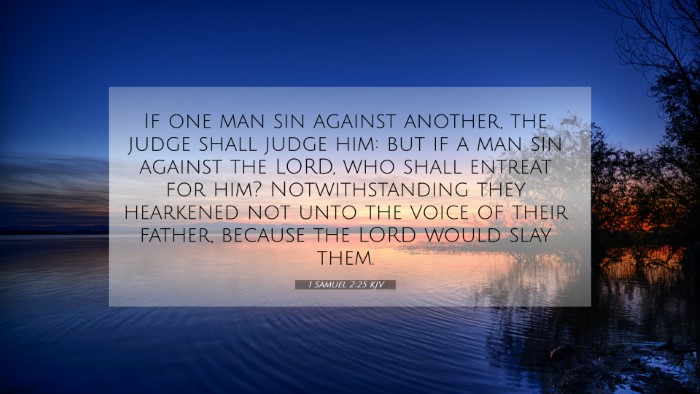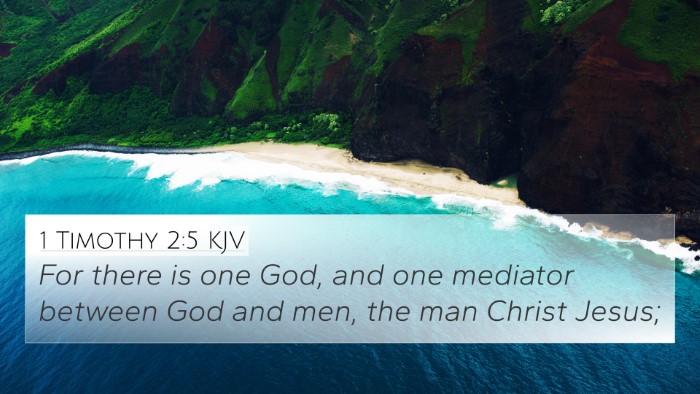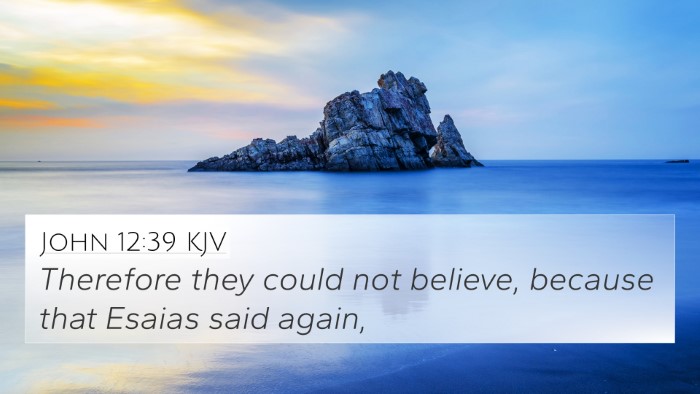This section features a detailed cross-reference designed to enrich your understanding of the Scriptures.
Below, you will find carefully selected verses that echo the themes and teachings related to 1 Samuel 2:25 KJV. Click on any image to explore detailed analyses of related Bible verses and uncover deeper theological insights.
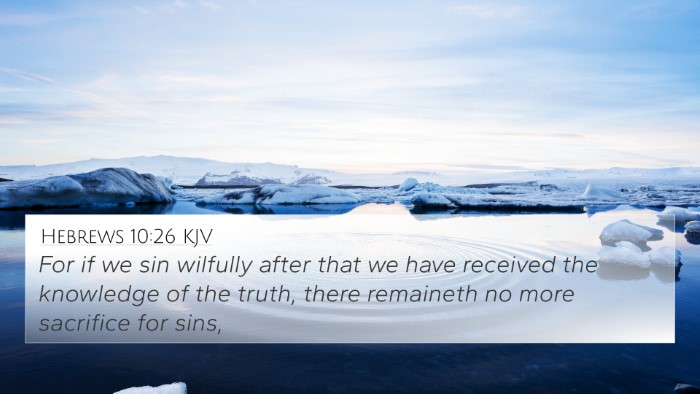 Hebrews 10:26 (KJV) »
Hebrews 10:26 (KJV) »
For if we sin wilfully after that we have received the knowledge of the truth, there remaineth no more sacrifice for sins,
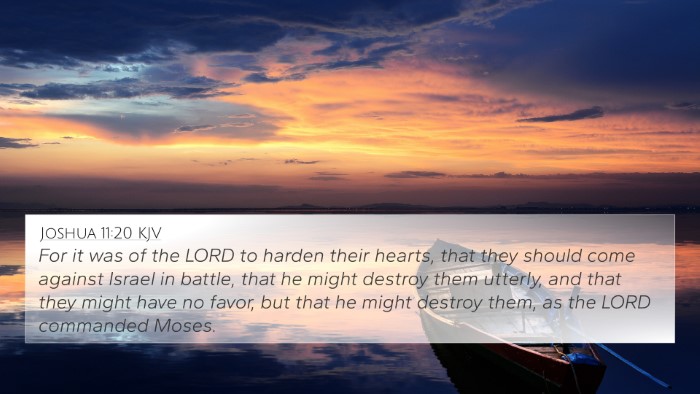 Joshua 11:20 (KJV) »
Joshua 11:20 (KJV) »
For it was of the LORD to harden their hearts, that they should come against Israel in battle, that he might destroy them utterly, and that they might have no favor, but that he might destroy them, as the LORD commanded Moses.
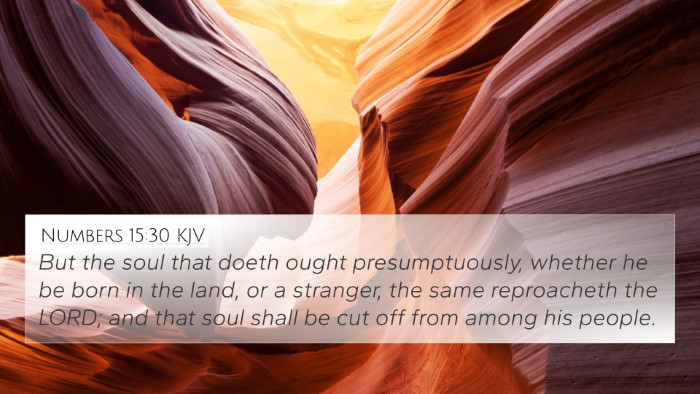 Numbers 15:30 (KJV) »
Numbers 15:30 (KJV) »
But the soul that doeth ought presumptuously, whether he be born in the land, or a stranger, the same reproacheth the LORD; and that soul shall be cut off from among his people.
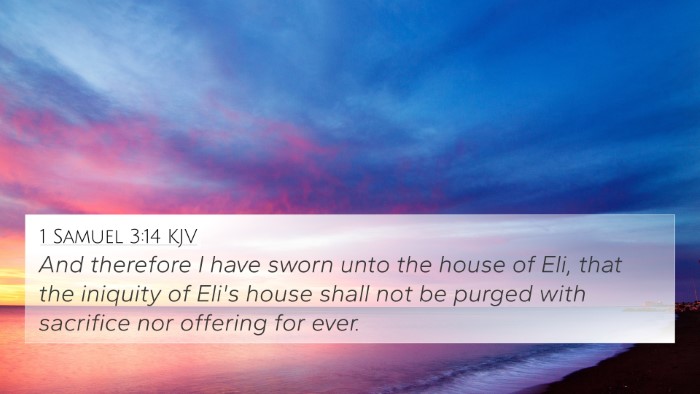 1 Samuel 3:14 (KJV) »
1 Samuel 3:14 (KJV) »
And therefore I have sworn unto the house of Eli, that the iniquity of Eli's house shall not be purged with sacrifice nor offering for ever.
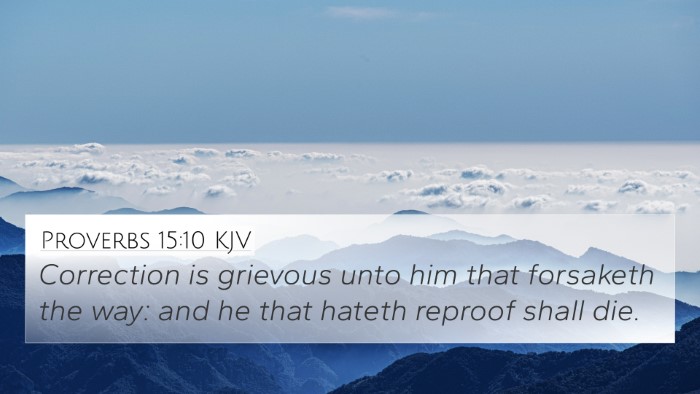 Proverbs 15:10 (KJV) »
Proverbs 15:10 (KJV) »
Correction is grievous unto him that forsaketh the way: and he that hateth reproof shall die.
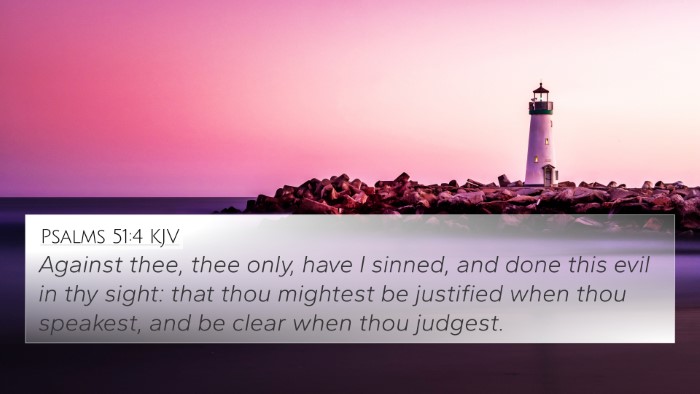 Psalms 51:4 (KJV) »
Psalms 51:4 (KJV) »
Against thee, thee only, have I sinned, and done this evil in thy sight: that thou mightest be justified when thou speakest, and be clear when thou judgest.
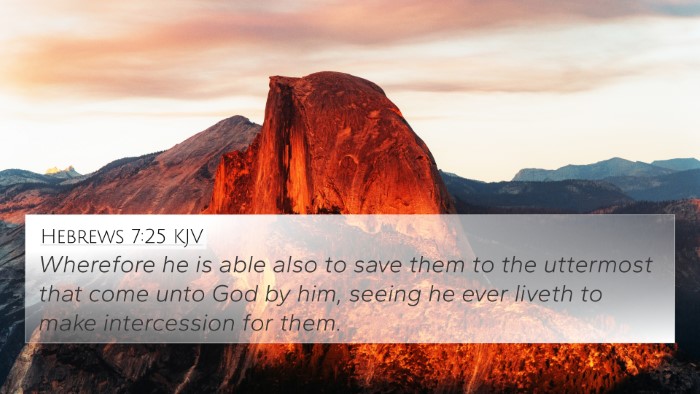 Hebrews 7:25 (KJV) »
Hebrews 7:25 (KJV) »
Wherefore he is able also to save them to the uttermost that come unto God by him, seeing he ever liveth to make intercession for them.
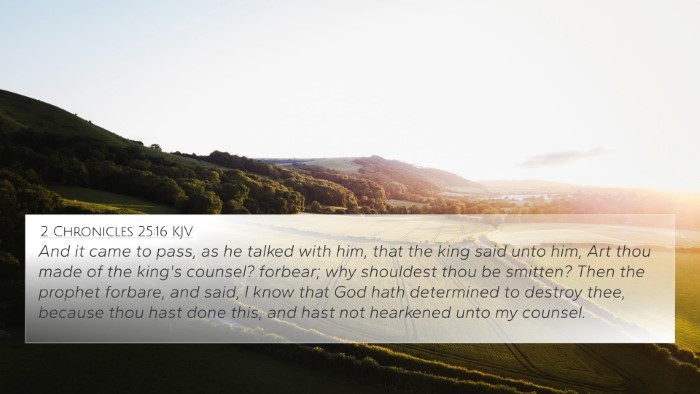 2 Chronicles 25:16 (KJV) »
2 Chronicles 25:16 (KJV) »
And it came to pass, as he talked with him, that the king said unto him, Art thou made of the king's counsel? forbear; why shouldest thou be smitten? Then the prophet forbare, and said, I know that God hath determined to destroy thee, because thou hast done this, and hast not hearkened unto my counsel.
 Psalms 51:16 (KJV) »
Psalms 51:16 (KJV) »
For thou desirest not sacrifice; else would I give it: thou delightest not in burnt offering.
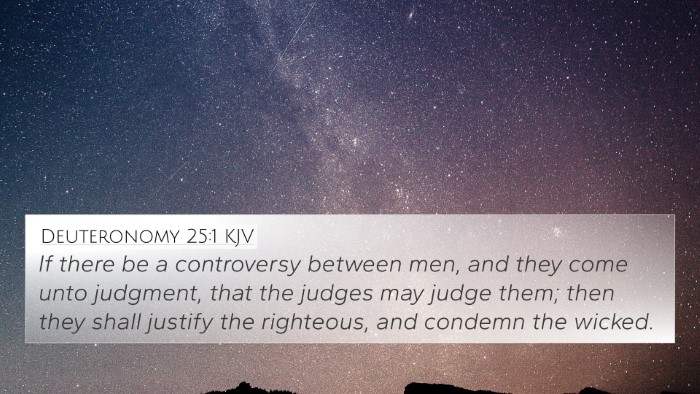 Deuteronomy 25:1 (KJV) »
Deuteronomy 25:1 (KJV) »
If there be a controversy between men, and they come unto judgment, that the judges may judge them; then they shall justify the righteous, and condemn the wicked.
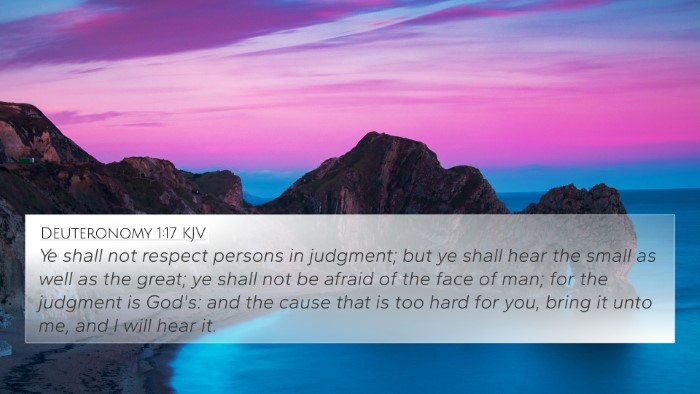 Deuteronomy 1:17 (KJV) »
Deuteronomy 1:17 (KJV) »
Ye shall not respect persons in judgment; but ye shall hear the small as well as the great; ye shall not be afraid of the face of man; for the judgment is God's: and the cause that is too hard for you, bring it unto me, and I will hear it.
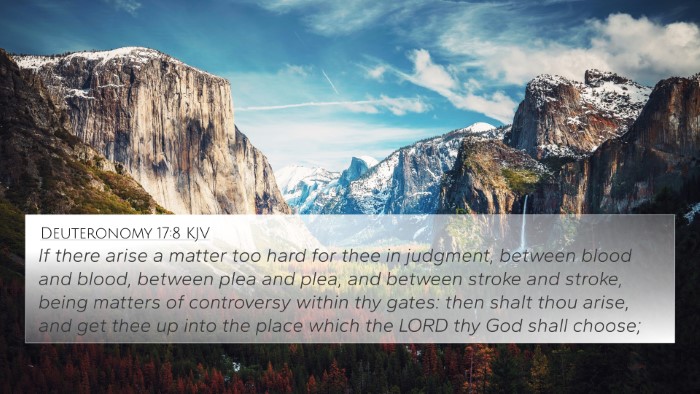 Deuteronomy 17:8 (KJV) »
Deuteronomy 17:8 (KJV) »
If there arise a matter too hard for thee in judgment, between blood and blood, between plea and plea, and between stroke and stroke, being matters of controversy within thy gates: then shalt thou arise, and get thee up into the place which the LORD thy God shall choose;
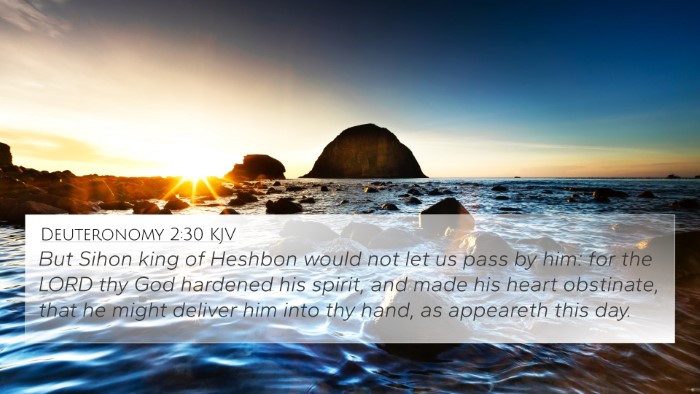 Deuteronomy 2:30 (KJV) »
Deuteronomy 2:30 (KJV) »
But Sihon king of Heshbon would not let us pass by him: for the LORD thy God hardened his spirit, and made his heart obstinate, that he might deliver him into thy hand, as appeareth this day.
